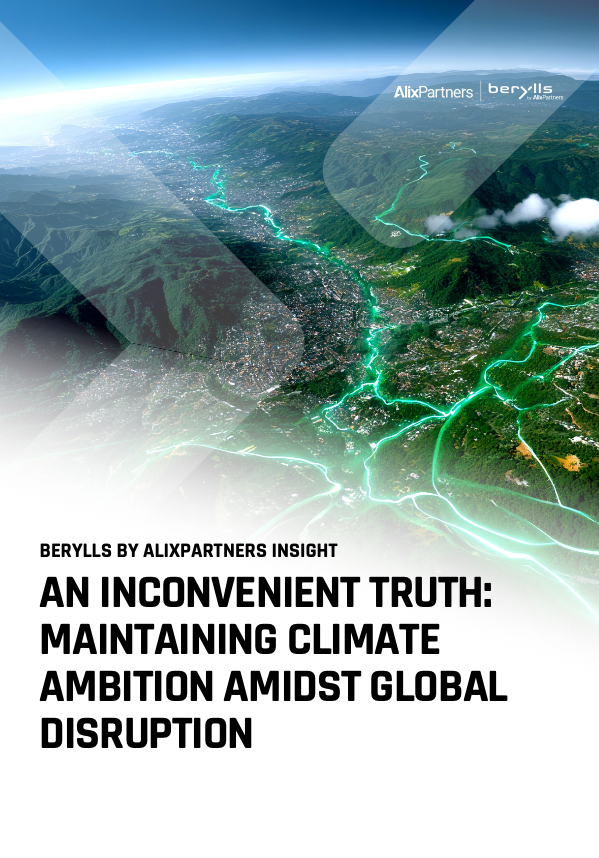WANT TO DISCOVER MORE?
SEARCH
WANT TO DISCOVER MORE?
SEARCH
he automotive sustainability narrative currently seems to stand at a critical crossroad as progress on decarbonization and fleet emission reductions slows down.
In this discussion paper, we highlight the influencing factors that lead to the recent cooldown of sustainability efforts. While economic pressures increasingly impair financial headroom of industry players, we argue – though certainly an inconvenient truth – that a departure from sustainability actions would not only put an end to progress achieved so far, but also harm OEM and supplier sustained competitiveness.
1. The automotive industry demonstrates measurable progress in sustainability.
OEMs have significantly reduced their direct emissions (Scope 1: –18%, Scope 2: –58% since 2018) and lowered average EU fleet emissions by 8.3%. These achievements underscore that sustainability has become a core performance indicator across the industry.
2. Sustainability ambitions are losing momentum.
Despite notable progress, around 50% of OEMs have recently scaled back, postponed, or abandoned their electrification targets. This trend risks undermining achieved gains and delaying the realization of scale effects in the transformation process.
3. Four global forces are slowing down the transformation.
Heterogeneous global customer demand (especially China vs. Rest of World), divergent regulations, rising geopolitical tensions (tariffs, wars, supply bottlenecks), and the ascent of Chinese competitors are putting pressure on margins and complicating investment decisions. OEMs are thus challenged to advance sustainability in an environment of declining planning certainty.
4. An inconvenient truth: Sustainability remains a strategic imperative.
In the face of global headwinds, OEMs cannot afford to scale back their sustainability efforts. Instead, they must respond with regionally differentiated strategies and flexible investment approaches. Those who ease off now risk competitive disadvantages, reputational damage, and limited access to capital—particularly when competing with consolidated, scale-driven Chinese players.
5. Sustainability as a management tool and value driver.
Integrating environmental and ESG metrics into core processes, governance, and product development is becoming a prerequisite for investor confidence, resilience, and growth. Companies that embed sustainability as a fundamental element of their management systems will not only ensure compliance but also unlock long-term economic value.
Download the full insight now!

NO TIME TO READ THIS WEBSITE?